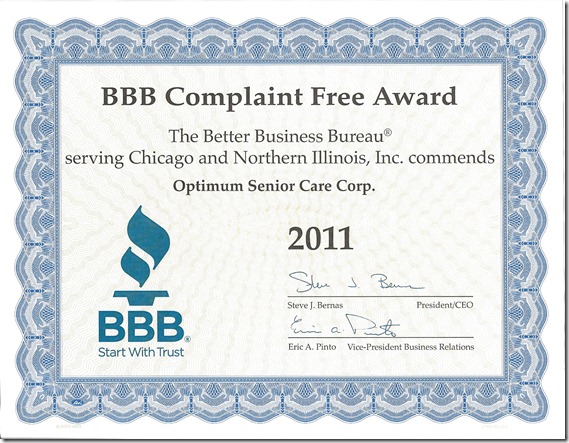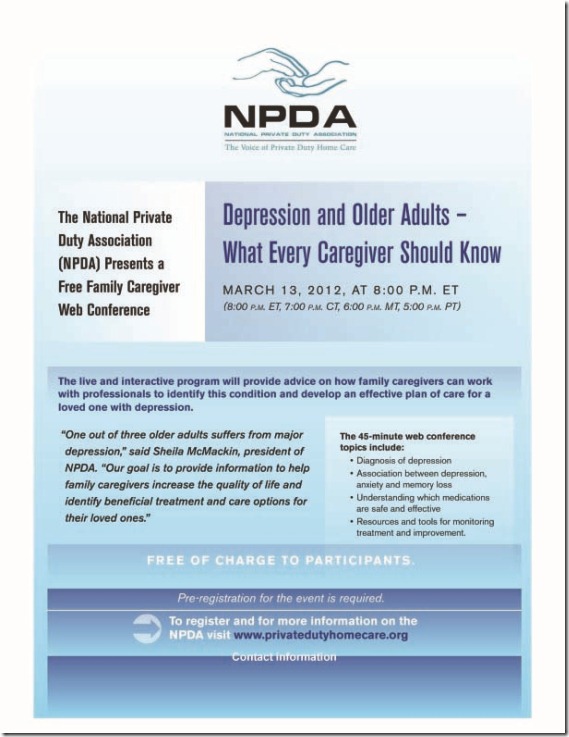Senior Spirit Newsletter
www.csa.us
When faced with life altering issues such as illness, death, and depression, seniors may find themselves in an unfamiliar position of dealing with heavy feelings and how to move forward. Perfectly capable adults who are distraught like never before may suddenly wonder what to do when confronted with overwhelming emotions.
Today’s seniors grew up in a time when people often didn’t share their feelings openly. It was not socially acceptable to disclose secrets of life-threatening illness or feelings of hurt or depression. However, today’s society is not only accepting of a person in a vulnerable state, but it also offers avenues for guiding that person to many types of support groups. Isolation is no longer necessary. Others are experiencing similar issues and are willing to share and provide a safe place to show up and ask for help.
Adult children or caregivers may often be the first line of defense when a senior is struggling. Family can be a good place to start to find support. Even seniors who are reluctant to share their emotions or feelings may seek help from their adult children or caregiver first. While that may be a good option for some people, it may also be a relief to find support outside the immediate circle of contacts.
When the adult child or the caregiver is ill-equipped to counsel the senior, or if they themselves need help, support groups may be the answer. Support groups are available for any ailment or situation. It just takes the willingness to participate and a little research to find the right one.
What is a support group?
The good news is that support groups exist for all kinds of ailments and situations. While many groups hold meetings in hospitals, churches, schools, homes, libraries, or community centers, others are available online. The Daily Strength website offers immediate access to anonymous support groups who meet online. People who are dealing with common types of issues come together and strengthen each other by sharing their feelings, experiences, and suggestions related to those issues and their own situation. Participants can relate to what others in the group are going through and therefore don’t feel alone.
Group leaders may be professional facilitators, such as nurses or psychologists, or peers may lead. It is up to the group members to decide what they are seeking from their leader. Trained facilitators offer a more professional approach to dealing with the issue at hand, while peer groups tend to offer more emotional support and a shared experience approach.
Additionally, support group participants often benefit from information shared during meetings. Genetic Health says that oftentimes people in support groups easily share information about medical treatments, research, and strategies for dealing with an ailment. Other helpful information can also include public policy, legal resources, privacy laws, protection from discrimination, and connections to financial assistance and scholarships. Uncovering this information on one’s own could take months with a concerted effort, but in a support group, that information is shared readily.
Tips for finding a support group
- Talk to your doctor or the hospital
- Ask friends who have gone through the same experience
- Search online for local meetings
- Check online for resources such as online support groups , blogs, or chat rooms that are focused on your issue
- Contact focused associations such as the American Cancer Society or Alzheimer’s Association.
- Another great resource for discovering the appropriate type of support is the Mental Health America website, which guides visitors to support groups. One may also visit the Mental Health America affiliate website, which is an excellent resource for support groups by state.
Characteristics of a good support group
While each person will seek something different from support groups, participants must ultimately feel comfortable attending meetings and sharing their thoughts, feelings, and experiences. The common characteristics that generally create a well-functioning group are:
- Prompt response to inquiries about the group
- Up-to-date and reliable information
- Strong leadership
- Access to professional advisors who align with the group’s interest
- A clearly stated and practiced “confidentiality policy”
The Mayo Clinic says that the benefits offered by support groups are unmatched and unlimited for a person struggling with an issue. People get something different out of the same meeting, depending on where they are in their experience and how willing they are to accept help. Benefits from joining and participating in a support group are:
Feeling less lonely, isolated, or judged
Gaining a sense of empowerment and control
Improving coping skills and adjustment
Engaging in an opportunity to talk openly and honestly about personal feelings
Reducing distress, depression, or anxiety
Gaining a clearer understanding of what to expect with one’s situation
Learning about new medical research
Getting practical advice or information about treatment options
Comparing notes about resources such as doctors and alternative options
Seniors who are dealing with new issues or issues that continue to plague their daily lives and hinder them from enjoying a productive life should investigate support groups. An adult child, caregiver, friend, or doctor can help find the right place for the senior to engage in getting help through the unique opportunity of support groups.
Adult children and caregivers also have access to support groups. Being responsible for a senior’s care can be frustrating, emotionally and physically draining, and overwhelming. People often need help, and sometimes that help is just a support group away from changing a life.
 Visit the CSA blog: www.csa.us/blog
Visit the CSA blog: www.csa.us/blog
 Follow SCSA on Twitter: www.twitter.com/SocietyCSA
Follow SCSA on Twitter: www.twitter.com/SocietyCSA
 Visit SCSA on LinkedIn:www.linkedin.com/in/jessicamcramer
Visit SCSA on LinkedIn:www.linkedin.com/in/jessicamcramer




